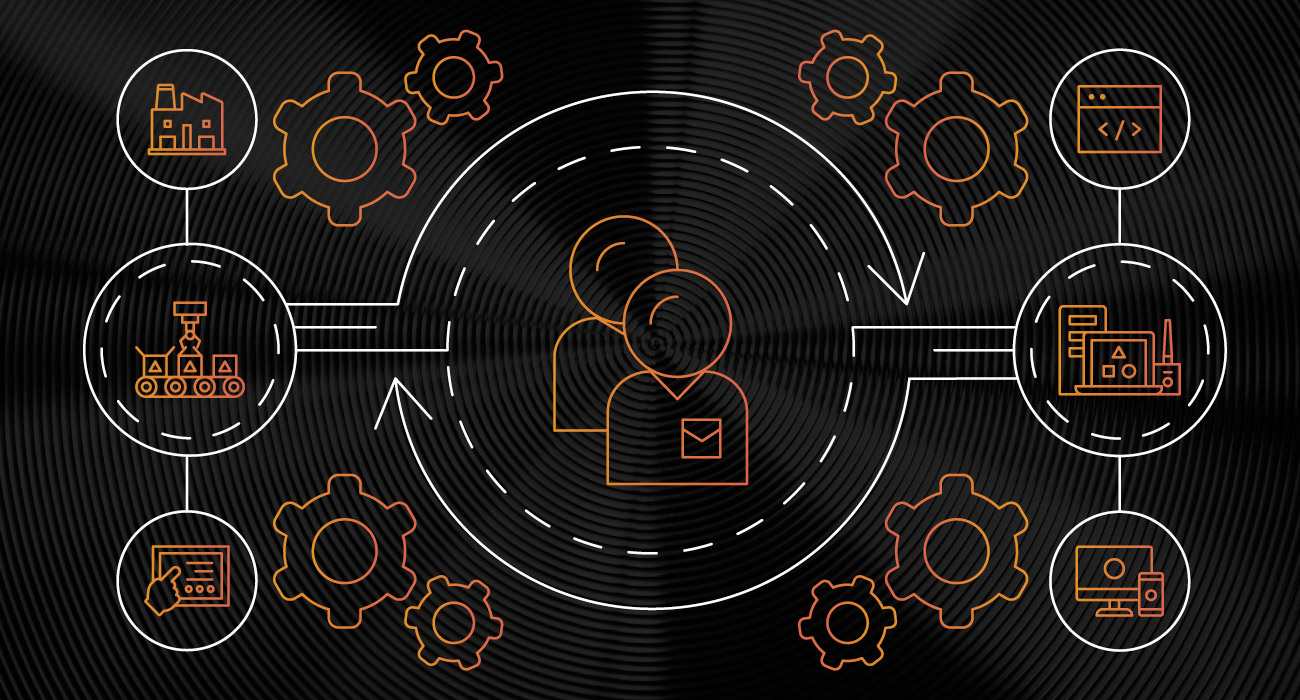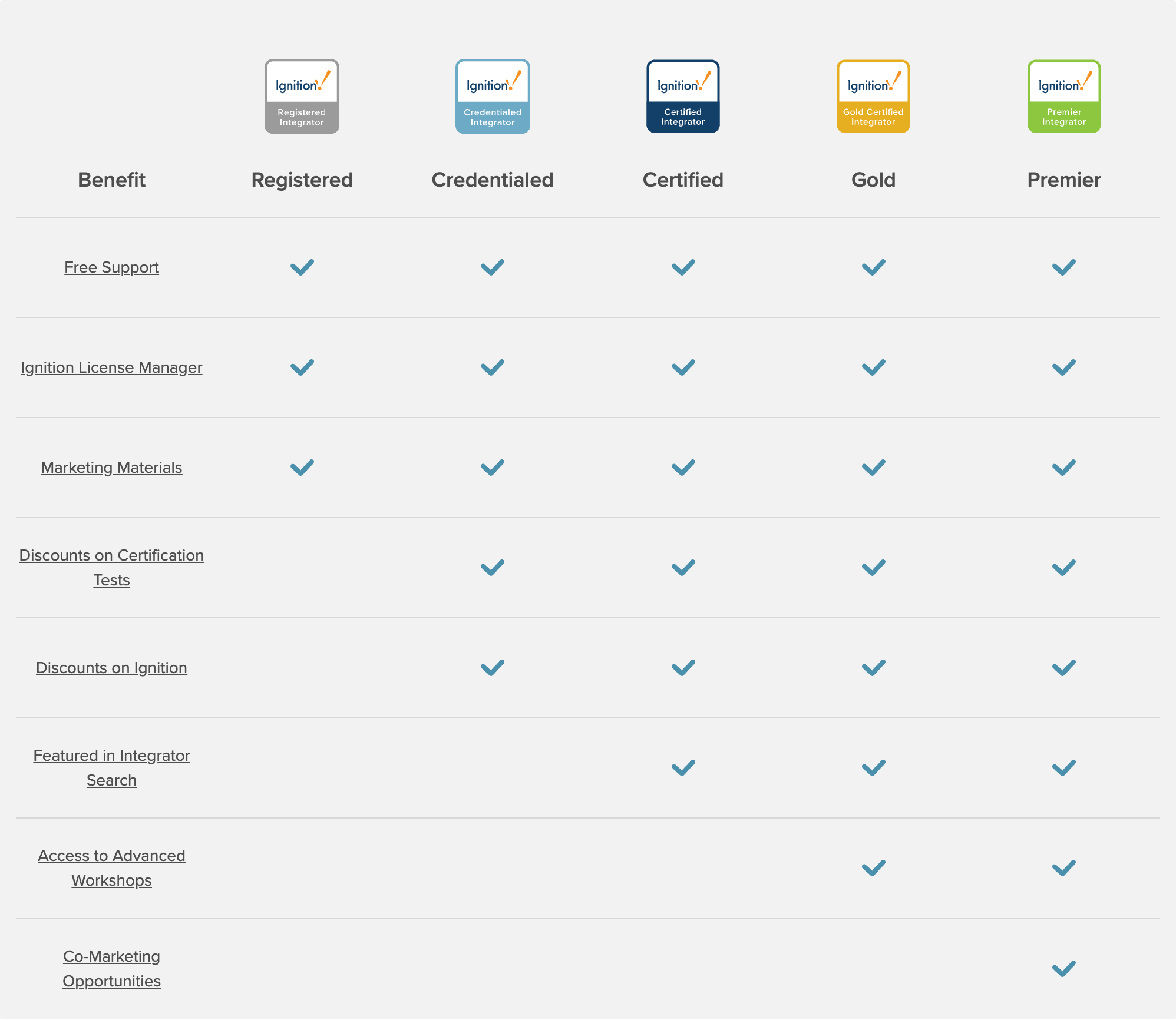What Is A System Integrator?
8 minute read
As your business expands and your need for more sophisticated automation technologies grows, it can be challenging to find the right set of tools and technologies to build your system. That’s where integrators come in.
Whether you call them “control system integrators,” “systems integrators,” “system integrators,” or just “integrators,” these technology professionals combine different hardware, software, and communication protocols to create an automation system for their customers, and they are becoming increasingly important with the rising adoption of new automation technologies. Integrators serve as an essential guide for Digital Transformation, helping you leverage the latest advancements to optimize your production, reduce costs, enhance overall efficiency, and improve customer experiences.
As industries continuously evolve, system integrators play an ever more important role in ensuring that various technological components work seamlessly together, enabling you to achieve your goals more effectively.

What Do System Integrators Do?
A system integrator's most important responsibilities include finding and implementing the best automation platform and technologies for a system and replacing or updating a legacy system to facilitate Digital Transformation. Also, integrators often manage the project from start to finish, which includes coordinating with various vendors, managing timelines, and ensuring that the project stays within budget.
System integrators start by analyzing your existing systems and processes to identify areas for improvement and helping you choose a system design and architecture to ensure the new solutions align with your business goals and comply with local regulations.
Integrators will also customize solutions to fit your industry. This includes configuring hardware and software to optimize performance and functionality, and ensuring that the new systems adhere to security standards and protocols to protect data and prevent unauthorized access.
When building your system, integrators implement multiple technologies, including:
- Supervisory control and data acquisition (SCADA)
- Human-machine interfaces (HMI)
- Manufacturing execution systems (MES)
- Enterprise resource planning (ERP)
- The Industrial Internet of Things (IIoT)
With these technologies, integrators can build on-premise, hybrid, and remote systems, connect your customer relationship management (CRM) system to inventory and transportation, increase overall equipment effectiveness (OEE), and more.
When your system is installed and ready, integrators will often provide training to ensure that your staff is proficient in using the new systems. This may include ongoing support and maintenance to address any post-deployment issues.

How System Integrators Give Your Projects An Edge
System integrators streamline complex projects by allowing you to outsource all of the complicated integration to an expert. Integrators are outside contractors, which allows your team to continue working on production. Also, if you need to hire a new integrator, you always have the option to switch to one that better fits your needs.
Integrators are not only the easiest and most flexible choice — they also add value to businesses by enabling you to build systems that minimize inefficiencies. While many organizations are capable of making their own automation systems, systems integrators bring many years of experience optimizing automation systems so that their customers can focus on their core business activities.

Anyone Can Benefit From A System Integrator
Most integrators are generalists and offer a broad range of integration services across various technologies and industries, which makes them a valuable asset for any organization. However, integrators often specialize in a set of industries, such as manufacturing, water and wastewater, and oil and gas, or others, to provide more expertise and customized solutions in that niche.
- Manufacturing: Integrators in this field implement SCADA, HMI, MES, and ERP solutions to enhance production efficiency and connectivity between equipment, locations, and systems to improve the manufacturing lifecycle. To see a great example of manufacturing integration, see how Artek Integrated Solutions built a SCADA system that connects to an ERP system for iron foundry Ferroloy.
- Water and Wastewater: Integrators often specialize in integrating advanced SCADA and HMI systems to optimize water treatment processes and wastewater management, enhancing operational efficiency and environmental compliance. Find out how Flexware Innovation built an exceptional SCADA system for California American Water.
- Oil And Gas: Integrators are known for implementing comprehensive automation solutions to ensure safety, increase production efficiency, and streamline pipeline and refinery operations with SCADA, HMIs, IIoT, and edge-of-network technologies for remote pumping sites. See how Industrial Networking Solutions built a complete HMI and SCADA system with MQTT communication and edge computing capabilities for the oil and gas company ARB Midstream.
By focusing on a set of industries, integrators are able to deliver highly effective solutions, ensuring maximum efficiency, compliance, and growth for their clients.

Choosing The Best System Integrator For Your Company
There are many different types of system integrators out there. Some integrators work in specific regions and countries, some are mostly SCADA integrators, and some are more knowledgeable of specific platforms that are best for your company, so it’s important to weigh your options effectively.
Each industry has different requirements for everything from compliance to technologies, which can make finding the right platform challenging. However, Inductive Automation makes it easy to find integrators that use its platform, Ignition, and specialize in your industry.
Ignition is a platform for building custom automation applications, and it acts as a hub for everything on your plant floor and beyond, from the edge to the cloud. It enables integrators to seamlessly combine technologies and systems by connecting IT and OT with open-standard technologies like SQL, Python, OPC UA, MQTT, and more. It also has unlimited tags, clients, designers, and connections, so your system can scale infinitely with your business.
Former system integrator Steve Hechtman founded Inductive Automation in 2003 to solve pain points that are common in the integration industry. That’s why Inductive Automation has partnered with integrators worldwide through its Integrator Program since the beginning, which has grown to become the extensive Ignition community.
On the Inductive Automation website, you can search for Ignition integrators that participate in the Integrator Program listed in order of increasing proficiency — from Credentialed to Certified, Gold Certified, and Premier — and by location, industry, technology specializations, and more.
To get started on your Digital Transformation journey, check out Inductive Automation’s Find an Integrator page to search for a skilled Ignition integrator in your industry and region.
Also, Inductive Automation's Top-Selling Integrators page highlights the 100 top-selling Ignition integrators on a leaderboard. This is another great place to find the most qualified and experienced integrators for your company.

Join Inductive Automation’s Integrator Program!
Are you a system integrator interested in providing the best solutions possible for your customers? Join Inductive Automation’s Integrator Program to become a registered Ignition integrator!
Inductive Automation is dedicated to building a community of Ignition integrators by helping integrators develop their Ignition skills, win projects, build successful projects, and get a chance to be recognized for their exceptional work with Ignition.
This program provides the opportunity for integrators to become certified at multiple levels of achievement, including:
- Registered
- Credentialed
- Certified
- Gold
- Premier
Each level provides you with increasing access to special perks, as shown on this chart:

Additionally, you can win badges based on your achievements and specialties as an integrator that will show up when customers search for your company on the Find an Integrator page, including the Enterprise, IIoT, and MES badges.
System integrators are more important now than ever before. In today's rapidly evolving technological landscape, the widespread adoption of cutting-edge technologies such as the cloud, sensors, artificial intelligence (AI), and machine learning (ML) is transforming industries at an incredible pace. Apply to join the Integrator Program today and work with Inductive Automation to win more projects and provide the best value to your customers.
Systems Integrator FAQs
- Q: What kind of ongoing support and maintenance do system integrators provide?
A: System integrators typically offer ongoing support services to ensure your systems are functioning. This may include troubleshooting issues, updating or patching your system, and 24/7 technical support. - Q: How do system integrators work to strengthen the security of my systems and data?
A: Systems integrators follow robust security measures and best practices for data security, encryption, and access control to help protect your systems from cyber threats. - Q: How do I choose the right system integrator for my project?
A: You should consider factors such as the system integrator’s experience, expertise, reputation, track record, technical capabilities, customer service, and pricing. You should look for system integrators that have completed projects similar to yours. - Q: What skills are necessary for system integrators?
A: It is essential for Integrators to have problem-solving, project management, and communication skills, to understand programming languages, network protocols, various operating systems, and hardware, and to be committed to continuous learning. - Q: What certifications can enhance a system integrator's job prospects?
A: Certifications like Cisco Certified Network Associate (CCNA), Microsoft Certified Systems Engineer (MCSE), Certified Information Systems Security Professional (CISSP), and Ignition Registered, Credentialed, Certified, Gold, and Premier certifications are very useful for integrators.
Related Articles
Want to stay up-to-date with us?
Sign up for our weekly News Feed.
